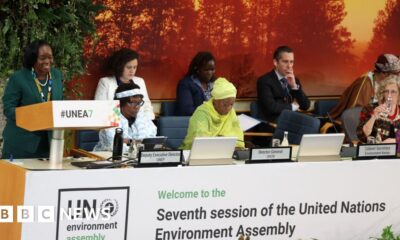Sports
Urgent Debate Arises Over Child Protection and Sexual Abuse

Concerns are escalating over the treatment of minors in relation to sexual abuse cases, particularly highlighted by the ongoing discussions surrounding the actions of convicted sex offender Jeffrey Epstein. Recent commentary from various media outlets, including those aligned with the MAGA movement, suggests a troubling trend of normalizing the exploitation of minors. This raises critical questions about societal attitudes toward children and their agency, especially in the context of a 15-year-old girl or a boy with a gun.
In the United States, the discourse has shifted from addressing serious issues like abuse of power and exploitation to debating the legality of actions based on age. Discussions have surfaced questioning whether a girl of 15 is still considered a child. This rhetoric, which minimizes the severity of situations involving minors, has been perpetuated by high-profile figures, including comments that imply Epstein’s actions were less severe because they involved teenagers rather than prepubescent children.
As a result, the conversation around child trafficking and abuse is becoming dangerously normalized. Victims often face a barrage of questions that shift blame onto them, such as, “Did you know what you were getting into?” or “Why didn’t you escape?” If society views 15-year-olds as “women” instead of children, the implication is that they bear responsibility for their circumstances.
In Montenegro, cultural norms have historically viewed 15-year-old girls as nearing adulthood, ready for marriage. Despite this, there remains a significant lack of public outcry regarding child protection and domestic violence. Recent tragedies, such as the death of an infant in Nikšić earlier this month, highlight the urgent need for systemic change. Yet, such events are often categorized as “tragic occurrences” without further investigation into the underlying issues.
Moreover, the healthcare system in Montenegro faces its own crises, as evidenced by the growing distrust in medical professionals. This distrust is compounded by the rise of anti-vaccine sentiments, which have led to a resurgence in diseases that were previously under control. Magda, a local elder and self-taught epidemiologist, recalls a time when diseases like measles claimed countless lives before vaccines became widely available. “My vaccinated patients lived to a deep old age,” she states, contrasting with the current health landscape.
The country’s healthcare system is burdened by an exodus of experienced medical professionals, driven away by both retirement policies and the lure of better working conditions abroad. As a result, pediatricians and other essential staff are in short supply, increasing the risk that children will suffer due to systemic failures.
The prevailing laws on retirement have unintentionally sidelined a generation of skilled practitioners right when their expertise is most needed. This has led to a vacuum in knowledge transfer, leaving younger doctors without mentors and patients without critical care.
Against this backdrop, there exists a paradox where certain individuals, often those entrenched in power, evade the consequences of their actions. The public continues to grapple with the implications of allowing such figures to remain in positions of authority, as they perpetuate cycles of abuse and neglect.
The recent narrative around the victimization of minors and the reluctance to confront uncomfortable truths about systemic failures serves as a stark reminder of the ongoing struggles faced by children and women in society. As discussions around these critical issues unfold, it is imperative for communities to recognize that the responsibility lies not only with the perpetrators but also with the collective societal structures that allow such behaviors to persist.
When will society acknowledge that the normalization of exploitation impacts all of us? As we face the realities of abuse, both in the United States and in places like Montenegro, it is crucial to confront these issues head-on, advocating for the protection of those who cannot protect themselves. The time for complacency has passed; action is needed to safeguard the rights and dignity of every child.
-

 World3 days ago
World3 days agoCoronation Street’s Shocking Murder Twist Reveals Family Secrets
-

 Entertainment4 months ago
Entertainment4 months agoKate Garraway Sells £2 Million Home Amid Financial Struggles
-

 Entertainment3 months ago
Entertainment3 months agoAnn Ming Reflects on ITV’s ‘I Fought the Law’ Drama
-

 Health3 months ago
Health3 months agoKatie Price Faces New Health Concerns After Cancer Symptoms Resurface
-

 Entertainment3 weeks ago
Entertainment3 weeks agoCoronation Street Fans React as Todd Faces Heartbreaking Choice
-

 World4 weeks ago
World4 weeks agoBailey Announces Heartbreaking Split from Rebecca After Reunion
-

 Entertainment6 days ago
Entertainment6 days agoTwo Stars Evicted from I’m A Celebrity Just Days Before Finale
-

 World7 days ago
World7 days agoKevin Sinfield Exceeds Fundraising Goal Ahead of Final Marathons
-

 Entertainment3 months ago
Entertainment3 months agoCoronation Street’s Carl Webster Faces Trouble with New Affairs
-

 Entertainment3 months ago
Entertainment3 months agoWhere is Tinder Swindler Simon Leviev? Latest Updates Revealed
-

 Entertainment4 months ago
Entertainment4 months agoMarkiplier Addresses AI Controversy During Livestream Response
-

 Science2 months ago
Science2 months agoBrian Cox Addresses Claims of Alien Probe in 3I/ATLAS Discovery





















